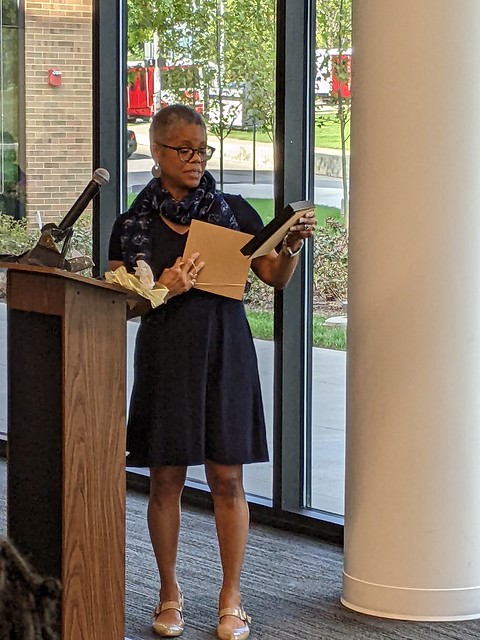The selected resources below are available through the Law Library’s study aid subscriptions. For more information on accessing our study aids, view our Introduction to Study Aids video and our 1-L Study Aids page on the 1-L Survival Guide.
This book, available through the West Academic study aid subscription, covers topics such as pre-planning, top student fears, first-year curriculum, the Socratic and case methods of teaching, effective class participation, top habits of successful students, essential study techniques, legal research and writing, exam strategies, maintaining well-being, and much more. Combines anecdotes, comments from law students, empirical research, and authentic samples of signature documents from the 1L experience, including exam questions, Socratic dialogue, and student case-briefs, class notes, and course outlines. McClurg is an award-winning professor who has taught at six different law schools.
This book, available through the Lexis Nexis Digital Library study aid subscription (Lexis Overdrive), teaches students the skill of applying law to fact—the skill that determines law-school grades and effective advocacy after law school. The author explains with examples and exercises nine reasoning techniques that the justices of the United States Supreme Court primarily use. The nine reasoning techniques come from classifying arguments in every sentence from an entire year’s worth of their cases.
This book, available through the Lexis Nexis Digital Library study aid subscription (Lexis Overdrive), demystifies law school and the process of studying the law. The book shows how study skills such as case briefing, taking notes in class, and preparing exam outlines are interrelated and how an incoming student can practice them before coming to law school, making the transition from prospective to actual law student easier and as painless as possible. The book also contains information about many practical issues, including the law school process, how to do well in a summer job, and taking the bar exam.
This book, available through the West Academic study aid subscription, provides an in-depth examination of these critical topics: 1) how the case method relates to Socratic-style questioning, and 2) how it helps develop analytical skills. It provides semester-long strategies for learning how to “think like a lawyer” by getting the most out of reading judicial opinions, attending classes, outlining, and preparing for exams. The analytical framework that helps students read appellate court cases to focus on legal issues, legal principles, and judges’ reasons for adopting and applying those principles. Twenty examples illustrate this analytical framework; these examples discuss essential legal principles from first-year courses and use judicial opinions often assigned in these courses. The text discusses how to develop case briefs and use them to prepare for class discussions, outlining, and exams—with illustrations drawn from two sample annotated briefs; the major types of legal argument—with illustrations drawn from cases; how to use class discussions to practice legal analysis, demonstrated with annotated excerpts from actual first-year class discussions; how to prepare for exams, covering outlining, analyzing hypotheticals, creating checklists and flowcharts, and practicing exam-taking skills.
Reading cases and statutes is challenging for students and attorneys. However, everybody can learn critical reading strategies and become effective legal readers and advocates. This book, available through the West Academic study aid subscription, identifies the reading strategies used by expert legal readers and presents the strategies in a systematic sequence. It is written in an easy to read style with lots of examples. Readers will learn: the purpose for reading cases, how to read with focus, case structure and important civil and criminal procedure terms, techniques for understanding complex text, strategies for identifying the parts of a case, how to brief a case, legal analysis skills such as analogical reasoning and case synthesis, and strategies for reading statutes. The second edition adds chapters that address reading on screens and techniques for reading bar prep materials. The second edition also has a seventeen part video series with PowerPoint slides. Each video introduces a reading strategy, provides helpful tips, includes a short student exercise, and gives students the opportunity to self-assess their proficiency.
The third edition of Expert Learning for Law Students, available through the Lexis Nexis Digital Library study aid subscription (Lexis Overdrive), is a reorganization and rethinking of this highly regarded law school success text. It retains the core insights and lessons from prior editions while updating the materials to reflect recent insights such as mindset theory, attribution theory, chunking for use, and interleaving learning. The text includes exercises and step-by-step guides to engage readers in the process of becoming expert learners—including specific strategies for succeeding in law school.
Drawn from interviews with students and attorneys from leading law schools and firms, this text, available through the Lexis Nexis Digital Library study aid subscription (Lexis Overdrive), provides strategies for succeeding in law school and beyond. Many college graduates aren’t prepared for the new challenges they will face in law school. Intense classroom discussion, mock trials and moot courts, learning the language of law, and impressing potential employers in a range of interview situations. Finding Your Voice in Law School offers a step-by-step guide to the most difficult tests you will confront as a law student, from making a speech in front of a room full of lawyers to arguing before a judge and jury. Author Molly Shadel, a former Justice Department attorney and Columbia law graduate who now teaches advocacy at the University of Virginia School of Law, also explains how to lay a strong foundation for your professional reputation. Communicating effectively–with professors, at social gatherings, with supervisors and colleagues at summer jobs, and as a leader of a student organization–can have a lasting impact on your legal career.
Law 101, available through the Lexis Nexis Digital Library study aid subscription (Lexis Overdrive), gives a behind-the-scenes look at what law school’s really like. The advice covers all aspects of law school, and ranges from academic advice on such topics as study techniques, classroom skills, and tips for exam success, to the best ways to participate in extracurricular activities, maintain healthy relationships outside of law school, and get a job after graduation.
This text is available through the Lexis Nexis Digital Library study aid subscription (Lexis Overdrive). Law school is different. Incoming students, confronted with an entirely new vocabulary and unfamiliar with the discipline’s unique and demanding educational methods, are often disoriented. This book is designed to give these students a head start, both by introducing them to the fundamentals of the legal process and by helping them acquire the study skills necessary for success. Starting Off Right in Law School introduces new law students to the practice and study of law by following a lawsuit from its inception through the appeals process, illustrating what lawyers actually do, how they prepare, how they interact with clients and in courtrooms, how a lawsuit proceeds, and how students can effectively read and analyze cases, outline, and apply what they have learned on the exams.
This book, available through the West Academic study aid subscription, gives law students weekly checklists explaining the skills necessary to successfully navigate their first year of law school. Each chapter provides a checklist of things to do that week, such as briefing cases, going over notes, outlining classes, or doing practice questions. When a new concept is introduced, this book clearly explains the concept and its purpose and provides examples. It also includes a bank of over 100 short, medium, and long practice questions in six first year subjects.



